Remembering Yü Ying-shih in Singapore: An ambitious social experiment disrupted
Renowned historian and sinologist Yü Ying-shih passed away earlier this month. Chinese culture and history enthusiasts may be familiar with his life's work on Chinese history and observations of contemporary China, but few may know that he has a connection to Singapore's history. During the 1980s, the education ministry explored the prospect of teaching Confucian ethics in schools. In the process, they tapped the expertise of eminent scholars such as Prof Yü. Did the experiment bear fruit in the end?
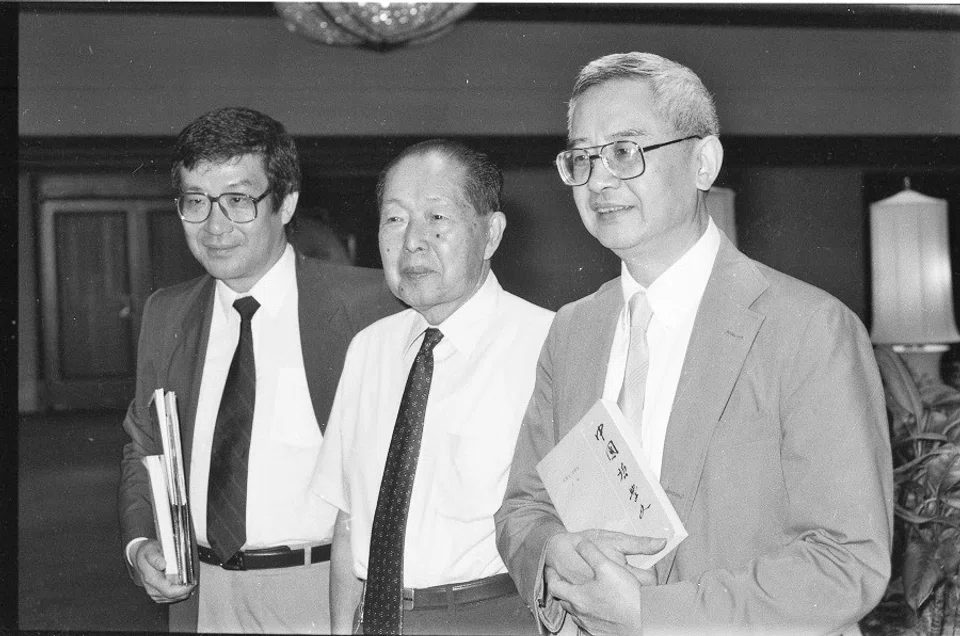
When news of Yü Ying-shih's passing broke in early August, leading media such as The New York Times, BBC and ABC (American Broadcasting Company) News ran obituaries paying tribute to him recalling his remarkable life and work as an outstanding historian.
Surprisingly, despite his extensive intellectual influence especially in East Asia, his death hardly got a mention in English-language media in Singapore.
Perhaps his name does not ring a bell with many Singaporeans today. But I am sure there are those among us who still remember how this China-born Asian American scholar once had a very close connection and deep involvement with Singapore during most of the 1980s.
Guru on teaching Confucian ethics
In fact Yü was a major player in a high-profile project to promote Confucian ethics, which the Ministry of Education (MOE) was introducing as part of the religious knowledge programme consisting of Bible Studies, Buddhist Studies, Hindu Studies, Islamic Religious Knowledge, Sikh Studies for secondary three and four students in Singapore schools.
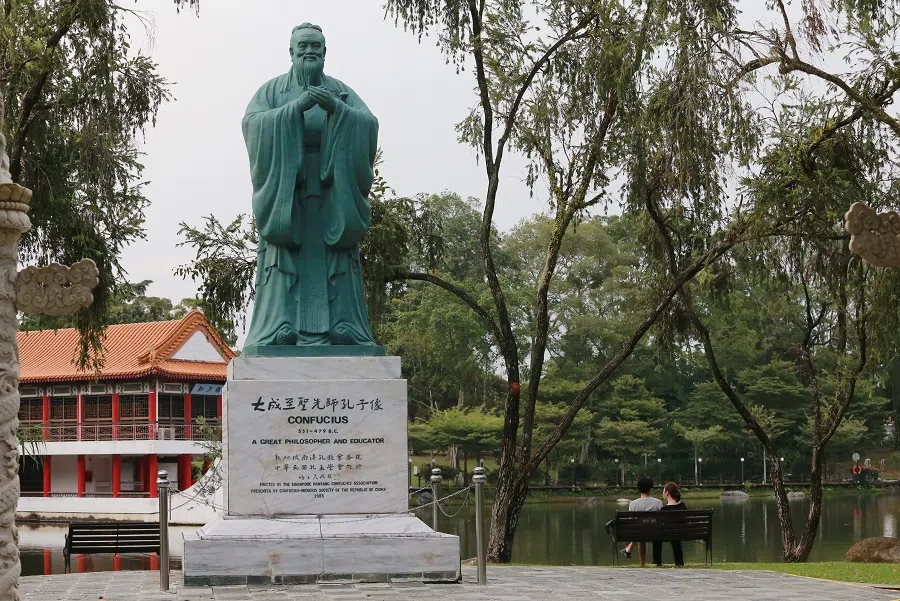
Yü's association with Singapore began soon after the MOE decided in January 1982 to teach Confucian ethics in the schools on the suggestion of then Prime Minister Lee Kuan Yew. Then Education Minister and Deputy Prime Minister Dr Goh Keng Swee led the project and quickly set things in motion.
For two months starting from July the same year, eight eminent scholars from the US took turns to visit Singapore and delivered public lectures on the subject of Confucianism. The frequency seemed fast and furious as these scholars were arriving one after another at a two-week interval. Besides, their visits were widely covered by the media, especially the Chinese-language newspapers. This might have given the impression that they were accorded importance far exceeding their role as mere curriculum consultants.
Among the eight visiting scholars, Yü Ying-shih from Yale and Tu Wei-ming from Harvard stood out and were quickly appointed to a high-powered committee for Confucian ethics as international consultants in 1983. A team of curriculum writers was also formed to write textbooks in Chinese and English, which were hailed as "first of its kind in the world". Next the Institute of East Asian Philosophies (IEAP) was established with Dr Goh as the chairman and Professor Wu Teh Yao as its founding director with Yü and Tu on the board.
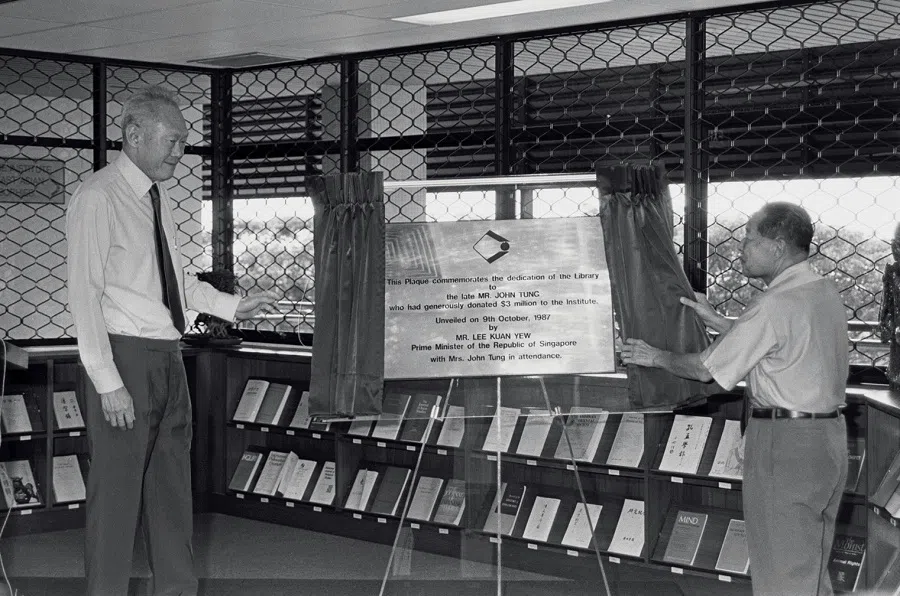
All these efforts, which had also been widely reported abroad, must have prompted Hong Kong entrepreneur John Tung to make an unsolicited donation of S$3 million to the institute in 1983. In 1987 Prime Minister Lee Kuan Yew officially dedicated the IEAP library in memory of John Tung who had unfortunately passed away the year before.
A wellspring of scholarship and exchange
The IEAP was especially active in organising frequent talks, public lectures, seminars and conferences. These activities brought to Singapore academic luminaries such as Lin Yu-sheng, Li Zehou, William Theodore de Bary, Frederick W. Mote, J.D. Frodsham, Liu Tsun-jen and Christoph Harbsmeier. Most of the talks and conferences were later published.
As a journalist at The Straits Times, I kept busy covering these events closely. I remember reporting on talks where Yü Ying-shih and Tu Wei-ming spoke. Once I interviewed American scholar Frederick W. Mote who was here to give a public lecture entitled "Confucian Thought as Viewed by Western Intellectuals". He spoke incredibly fluent Mandarin with an impeccable accent. It was not surprising that Mote had been among the first students at Harvard between 1943 and 1944 to be taught by linguist Chao Yuan-ren, sociologist Fei Hsiao-tung and historian Hu Shih, all of whom were among the best minds in Chinese studies then.
When Yü and Tu spoke, they were a study of contrast. Charismatic and eloquent Tu charmed his audience with his warm enthusiasm as he peppered his delivery with amusing anecdotes while Yü engaged listeners with his remarkable scholarship, persuasive arguments and modesty.
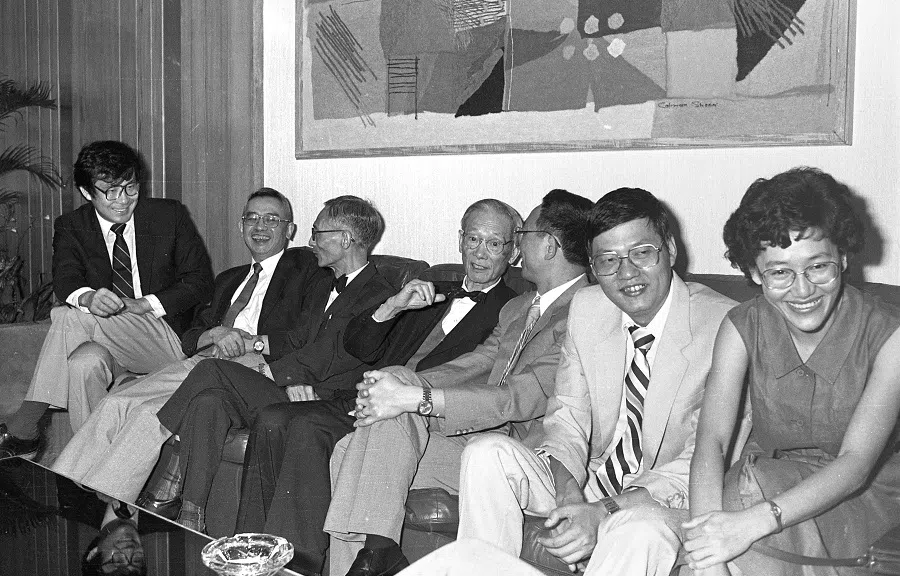
I also recall reporting on a public lecture "Confucianism and Businessmen" given by Yü Ying-shih where he took a critical look at the conventional Chinese social order placing the merchant on the lowest rung of the ladder. He said the status of the mercantile class improved as society became more developed and prosperous through the centuries.
The biggest IEAP event I covered was the International Conference on Confucian Studies in Qufu jointly organised by the Institute and the Confucius Foundation of China in August 1987. More than 110 scholars, researchers and teachers from all over the world gathered in a hotel at Queli, the street where the sage once lived. At the opening of the conference, both Singapore's former First Deputy Prime Minister Dr Goh Keng Swee and Second Deputy Prime Minister Ong Teng Cheong spoke. It was unusual for Dr Goh because he made a speech in Mandarin in public for the first time.
In 1988 I left The Straits Times to join the IEAP as an associate research fellow tasked with its publishing and translation projects. During the brief period when I was there I got to meet Yü and Tu when they came for board meetings and consultation with researchers and the curriculum team.
When Yü and Tu spoke, they were a study of contrast. Charismatic and eloquent Tu charmed his audience with his warm enthusiasm as he peppered his delivery with amusing anecdotes while Yü engaged listeners with his remarkable scholarship, persuasive arguments and modesty.
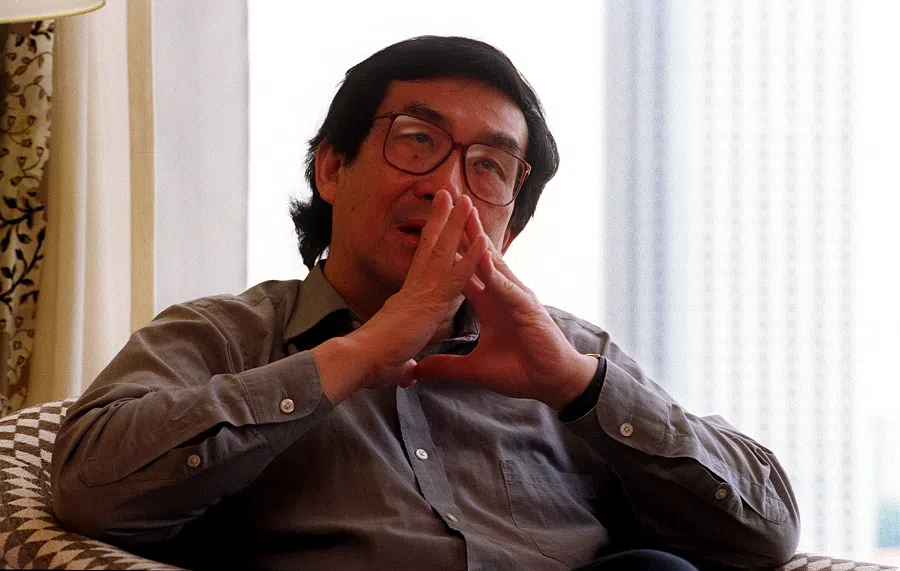
At the institute, I was once assigned to take care of American scholar William Theodore de Bary when he came to visit. He impressed me so much not only with his gentle and soft-spoken demeanour but with his erudition and most elegant Chinese handwriting as I once saw him write on the blackboard at a seminar. In preparation for his presentation, he wrote down relevant quotations from classical texts on the board as references for his talk. The way he was executing classical passages beautifully with such ease and flair completely bowled me over.
In an abrupt turn of events, the Confucian ethics programme came to a halt when the Ministry of Education abandoned the moral education programme in 1990. While it was not clear why this happened, the government introduced instead a white paper on shared values to be inculcated through schools in January 1991.
With this change in the education policy, the IEAP also shifted its focus of research from philosophies to politics and economics.
This major shift also spelt the end of the ambitious project which sociologist Eddie Kuo aptly described as "a social experiment" in his paper delivered at the Qufu conference in 1987, in which he analysed the factors favourable as well as unfavourable to the promotion of Confucian ethics in Singapore.
Looking back, would Prof Kuo have drawn the conclusion that conditions were not so conducive for such an ambitious experiment after all?
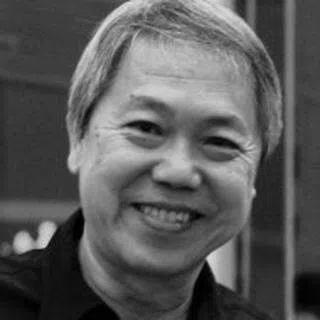


![[Big read] When the Arctic opens, what happens to Singapore?](https://cassette.sphdigital.com.sg/image/thinkchina/da65edebca34645c711c55e83e9877109b3c53847ebb1305573974651df1d13a)
![[Video] George Yeo: America’s deep pain — and why China won’t colonise](https://cassette.sphdigital.com.sg/image/thinkchina/15083e45d96c12390bdea6af2daf19fd9fcd875aa44a0f92796f34e3dad561cc)
